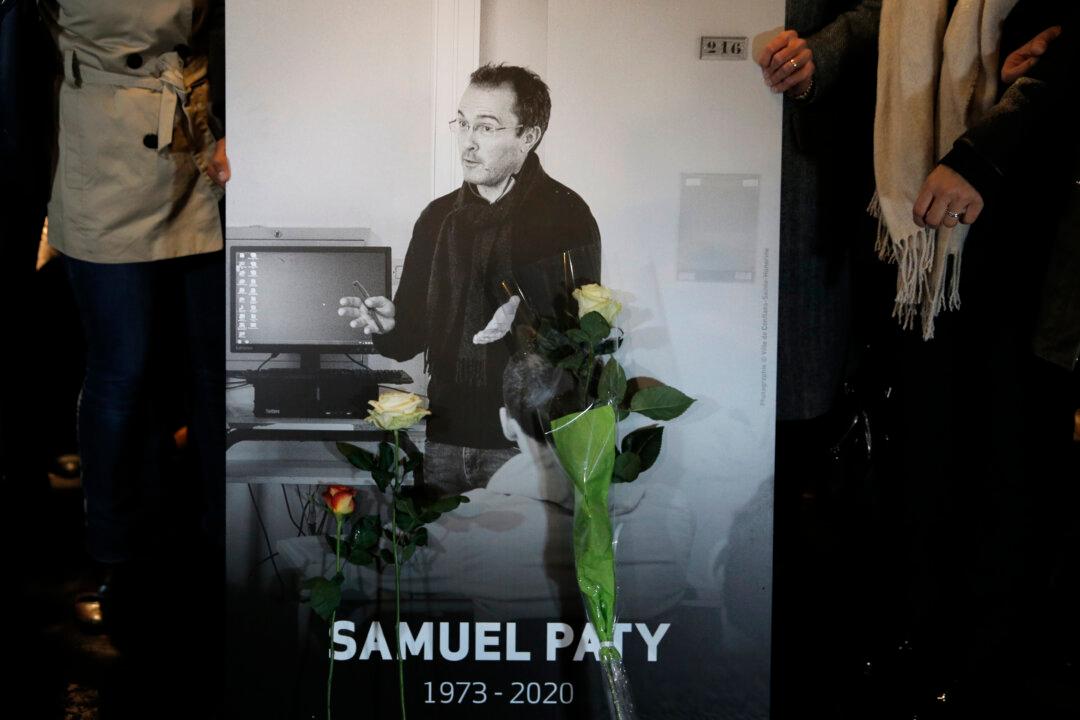Eight people have been sentenced to terms ranging from one to 16 years for assisting the Islamist extremist who murdered teacher Samuel Paty outside his school in Paris four years ago.
Paty was killed and beheaded, on Oct. 16, 2020, 11 days after showing pupils cartoons of the Prophet Muhammad during a classroom debate about free expression.





